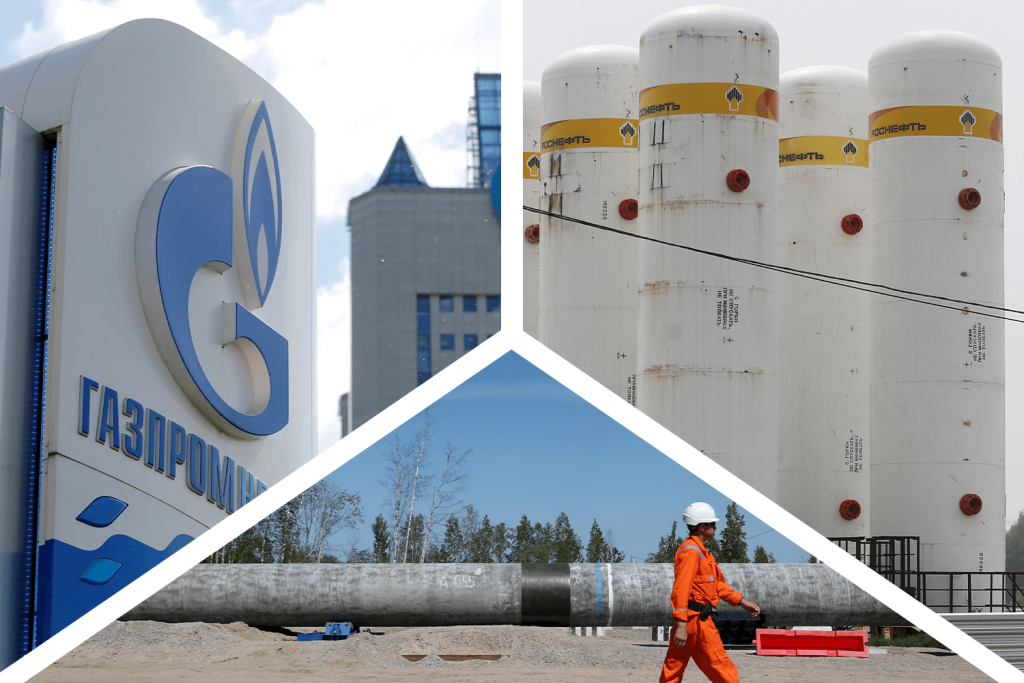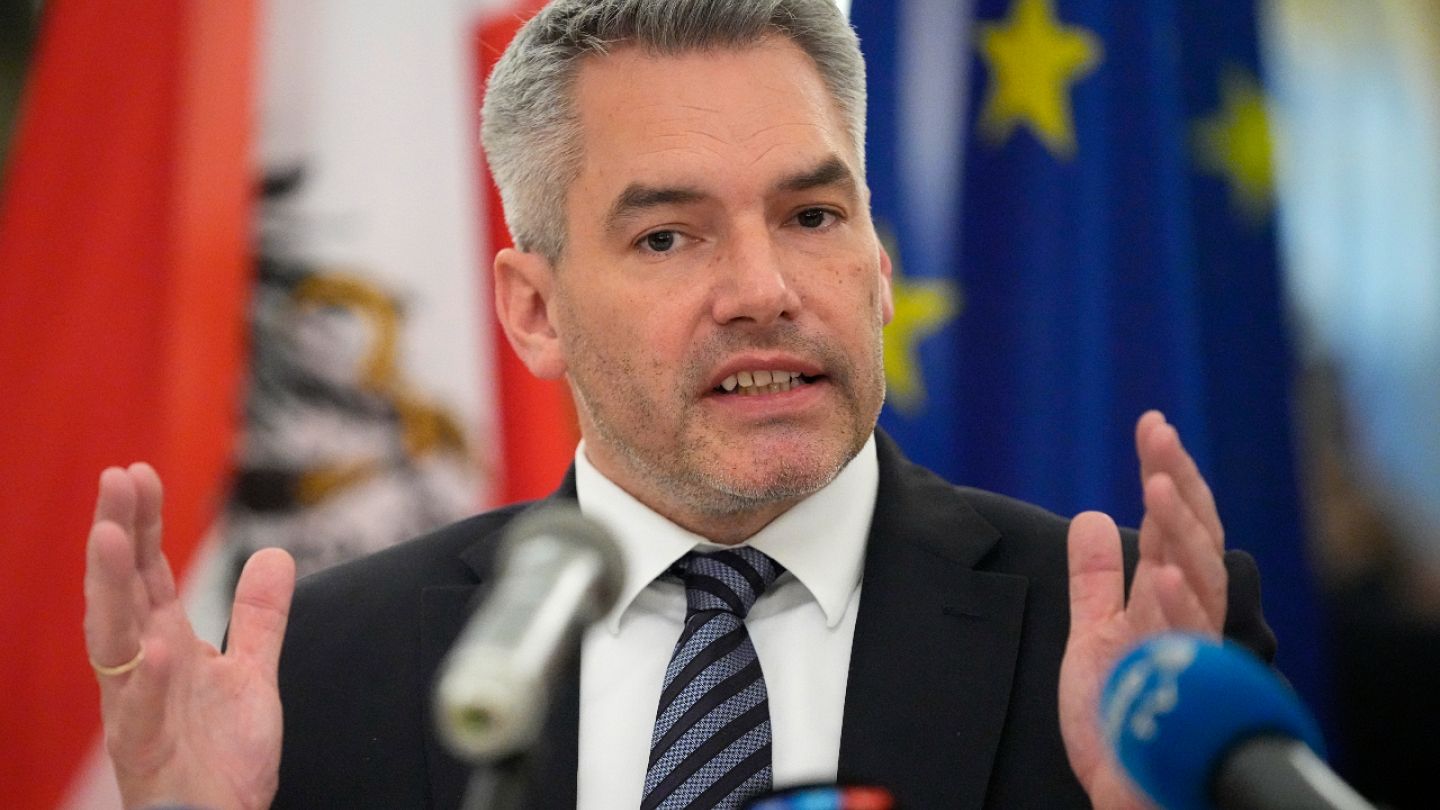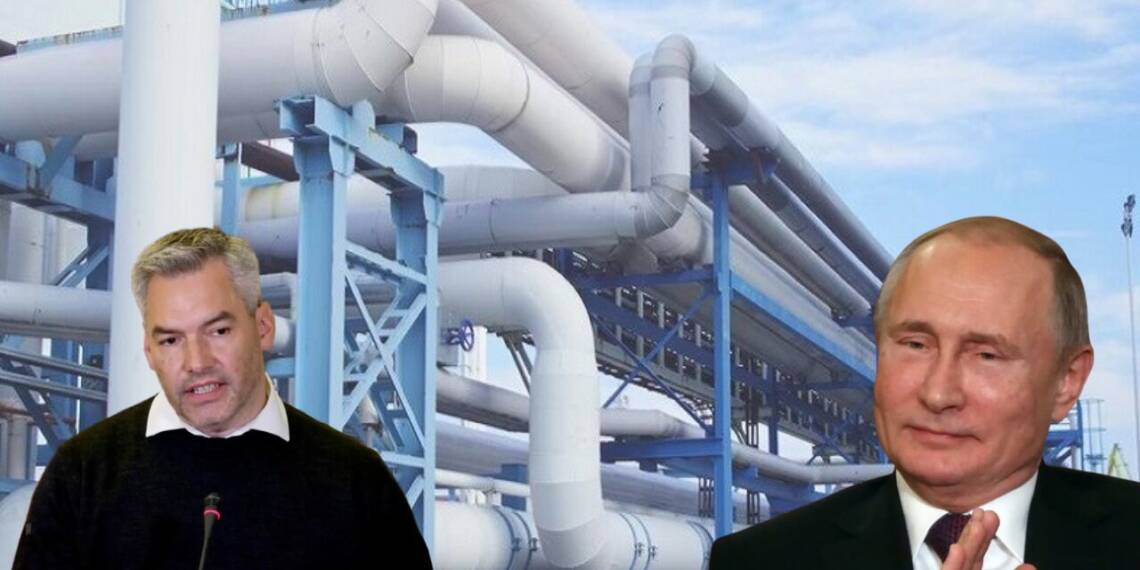While other EU countries cut off their Russian gas pipes as Russia and Ukraine collided, Austria made its pipes longer their cross sections broader. Austria’s reliance on Russian gas has significantly deepened, a trend that has raised both eyebrows and concerns in the European Union.
As of December 2023, an astounding 98% of Austria’s gas imports were sourced from Russia. This figure marks a record high in the nation’s reliance on Russian energy, especially notable since the onset of the Ukraine conflict.
Even before the conflict in Ukraine escalated, Austria’s dependency on Russian gas was already significant, accounting for approximately 80% of its imports.
A key player in Austria’s energy market is OMV, an Austrian utility, which is bound by a “take-or-pay” contract with Gazprom until 2040. This contract obligates OMV to purchase up to 60 TWh of gas annually, regardless of actual demand. Such agreements are common in the energy sector, providing stability for both supplier and purchaser. However, they also tie consumers to specific suppliers, in this case, making Russian gas a financially attractive option for local utilities due to potentially lower rates compared to alternative sources.

The Austrian government says that it has been actively exploring strategies to reduce its reliance on Russian gas. This includes ambitious plans to phase out Russian gas and potentially end the long-term contract ahead of its expiration. Legislative initiatives are also being considered to compel energy companies to diversify their gas sources.
Read More: The Unexpected Reunion of Austria and Russia
However, Austria does keep telling its EU partners that these steps are not without their obstacles, including legal, political, and infrastructural hurdles that could delay progress. Or let’s just say that’s what Austria wants them to believe.
22% of Austrian homes rely on natural gas for heating and Austria doesn’t want supply disruptions for some fruitless activism. Austria’s continued close ties with Russia, in the face of growing dependence, have drawn criticism from EU and the US. They argue that Austria should be moving more swiftly to find alternative energy sources and reduce its vulnerability. Austria nods at each one of them patiently and exports Russian gas anyway.
Energy Minister Leonore Gewessler is a master at method acting. She expressed serious concerns this increased dependence on Russian gas. She remains deeply worried about the timeline of events, with a marked increase in gas imports from Russia since the special operations against Ukraine on 24 February 2022. The jump to 98% of gas imports from Russia by December 2023, as per her, highlights the growing challenge Austria faces in securing its energy future while navigating the complex geopolitical landscape.
Join us on Telegram: https://t.me/tfiglobal
In an interesting twist, October 2022 saw a dramatic decrease in this dependence, with Russian gas making up only 17% of Austria’s imports. This significant drop was mainly due to Russia imposing its own restrictions on gas flows. That was when Austria was crumbling under EU Pressure. The numbers swiftly jumped up.
Throughout 2023, Austria witnessed a notable reduction in its gas consumption, dropping from 100 Terawatt hours (TWh) to 75 TWh. So what Austria is doing effectively is conserving more energy as compared to their EU counterparts.
Although Austria has options to diversify its gas supply, these alternatives come with their own set of challenges, primarily higher costs.
Importing gas from countries other than Russia introduces additional expenses. For instance, there’s a gas storage levy in Germany that adds to the cost. Furthermore, Italy is considering an export charge on its gas, which would further increase the price for Austria. These extra charges make alternatives to Russian gas significantly more expensive, complicating efforts to shift away from reliance on Russia.
Despite the fantastic acting, exploits of Austria’s gas imports from Russia have not gone unnoticed. EU envoy Martin Selmayr has pointedly criticized Austria for indirectly financing Russia’s war effort through its continued gas purchases. Such statements normally attract rebuttals from the target country’s ministers but not Austria doesn’t follow theories and thumb rules. Energy Minister Leonore Gewessler echoed this sentiment, underscoring the moral and political dimensions of Austria’s energy decisions. But then continued to count the issues in dissociating from Russia.
In terms of financial impact, Austria’s gas imports from Russia were valued at around €7 billion in 2022. The quest for independence from Russian gas is fraught with economic and logistical hurdles, but it also presents an opportunity for Austria to invest in more sustainable and secure energy sources.

Talking about the EU, it has set an ambitious goal to completely phase out Russian gas by 2028. However, Austria had yet to commence any substantial planning toward achieving this objective.
Energy Minister Leonore Gewessler has outlined a proactive three-step strategy aimed at diminishing Austria’s dependency on Russian gas.
The first step of Gewessler’s plan focuses on local utilities. It mandates an increase in their acquisition of non-Russian gas, leveraging the European Union’s joint purchasing platform. This initiative is designed to diversify Austria’s gas sources, reduce costs through collective bargaining, and enhance energy security by spreading supply risks.
Furthermore, Gewessler is determined to challenge the status quo by seeking to terminate the long-standing contract with Gazprom. But Austrian Conservatives won’t let this happen. This is what Leonore Gewessler is saying, not the conservatives.
Gewessler’s strategy advocates for increased use of non-Russian gas and attempting to break free from restrictive contracts. But advocating and implementing are two very different words with very different meanings.
Read More: Austria regrets conflict with Russia
Energy Minister Leonore Gewessler is now looking at the bigger picture, aiming to weave the goal of gas independence from Russia into the very fabric of Austria’s national security strategy.
She then explains that Austria’s political framework requires a two-thirds majority in Parliament for such significant changes, necessitating broad support across the political spectrum. This means her initiatives must find common ground between both centre-right and centre-left parties, making the task at hand not just a technical or economic challenge, but a deeply political one as well. Or in simple words – not happening!
The timing of these efforts is critical. Austria is on the cusp of a national election in Autumn 2024, with European elections also looming in June. By cutting off Energy Supply of Austrians, Gewessler can kiss her and her party’s political future goodbye.
Austria has also remained a militarily neutral state since World War 1. And its quest for energy and national security is its longstanding policy of military neutrality.
To an average reader, these developments may indicate that Austria is at a crossroads, in terms of its energy policy. But in reality, Austria has no doubts whatsoever. Unlike Hungary’s direct confrontational stance, Austria is with the European Union in letter and with Russia in spirit. That’s one way of going about things. SMART.
Watch More:








